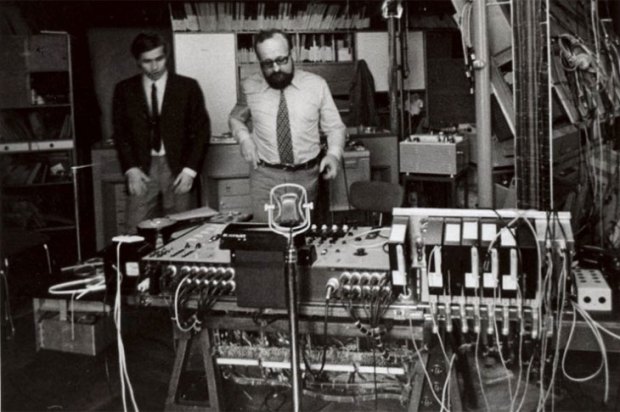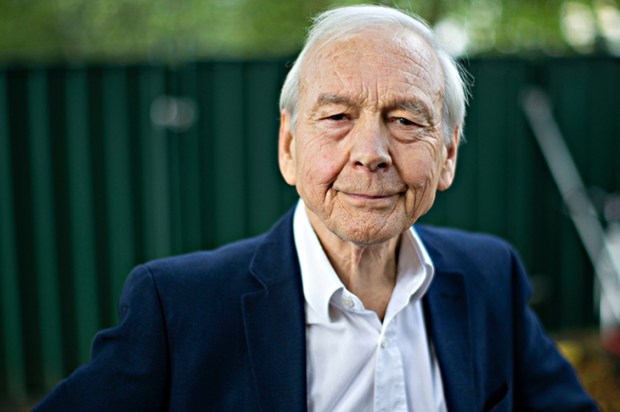It must have sounded like such a great idea. To gather a group of thinkers, agitators, experts, intellectuals and media people round a large table, mike them up, ply them with drink, choose a presenter from the radio hall of fame to act as monitor and shut the studio door. Then switch on the red light, and cross your fingers they’ll not run out of conversation before the hour’s up.
Summer Nights was introduced as ‘a first’ for Radio 4 — ‘live’ late-night conversation on topics ranging from sex to politics via fracking and the fear of boredom. I was really looking forward to the two-week season. Could it be a chance for Radio 4 to break out, shed some of its aura of certainty? Would we become eavesdroppers on some really stimulating conversation?
Perhaps it was something to do with the change of weather, the switch from the sultry balminess of those July evenings to the hint of autumnal crispness. Perhaps it was because on most nights there were too many guests (four, after all, is the maximum you can have round a table if you want meaningful conversation) and so too many different voices to identify. But it just didn’t work.
Jane Garvey (on a brief, much-heralded holiday from Woman’s Hour) did a valiant job of keeping her unruly table in check as they talked about ‘real sex lives in a sexualised society’ in the first programme. She had the daunting task of launching the series last Monday night, and appeared (or rather sounded) uncharacteristically tentative, urging us ‘not to switch off till midnight’ and asking, ‘What could possibly go wrong in the next 57 minutes?’
Before any of her guests had uttered a word she quoted from a listener’s tweet, as if to reassure herself we were still listening. Then she turned to Kaye Wellings, who heads up the research team into reproductive and sexual health at the London School of Hygiene and Tropical Medicine. ‘It’s an obvious question I know but how can you tell that your survey respondents are telling the truth about their sex lives?’
‘It is the obvious question,’ said Wellings, wearily. ‘It’s the question you get asked boringly at every single dinner party you ever go to and tell people what you do for a living.’
After half an hour I could only admire Garvey’s resilience and her ability to prevent the discussion from descending into a rant from Benedict on the advantages of pornography or a descant from Rosie on the thrills of promiscuity. The format is a huge ask for the team of presenters. At one point on Tuesday night, Hardeep Singh Kohli, who was nominally in charge, had to stop his guests, who were invited on to talk about political protest, from whispering in the background like naughty schoolchildren in the back row of the classroom.
Only Evan Davies rose to the challenge, not just marshalling his guests but ensuring the discussion (on environmental issues) had some meat, some direction, some point. He allowed his guests to reveal some personality, some background to their ideas, by introducing them with a specific question directed at their work, their experience, what they’ve so far accomplished. ‘Are you going to be an MP in 2015?’ he asked Caroline Lucas of the Green party. Davies wanted to know what his guests had in common, in spite of their divergent opinions. He wanted to know how they became the people they now are. Armed with this knowledge, it was easier to grasp what they were saying, follow their thoughts.
Melvyn Bragg has proved that round-table discussion on dry ideas can work on radio. He makes it sound so easy. In fact, his success is dependent on the quality of research and his own lifetime of experience. That’s why he sometimes sounds rather bossy. He needs to be, to keep the conversation going in a way that we as listeners can follow. He also never has more than three guests.
On Sunday afternoon it was back to a classic radio format with Hattie Naylor’s new dramatic adaptation of The Aeneid (directed by Kate McAll). Aeneas has fled Troy with his young son and is shipwrecked off the coast of Libya. He falls in love with Queen Dido but the gods insist he must move on to Italy to fulfil his destiny.
I have vivid memories of listening to an earlier, much earlier version in the classroom at primary school, Aeneas’ fate being played out through a large Bakelite radio on the teacher’s desk. That contrast between the violent fury of the gods, the passion of Dido, and Aeneas’ finely hued character, ‘his beauty fine as a craftsman’s hand can add to ivory’, was so vivid, so powerful, the words ringing in my ears. This new production, with music composed by Will Gregory and arranged by Ian Gardiner, had an accessibility, a contemporary flavour that at the same time enhanced the action, taking us into another aural world. Let’s hope some inspiring teachers will replay it in the classroom, converting a new generation to the wonder of radio.
Got something to add? Join the discussion and comment below.
Get 10 issues for just $10
Subscribe to The Spectator Australia today for the next 10 magazine issues, plus full online access, for just $10.
You might disagree with half of it, but you’ll enjoy reading all of it. Try your first month for free, then just $2 a week for the remainder of your first year.













Comments
Don't miss out
Join the conversation with other Spectator Australia readers. Subscribe to leave a comment.
SUBSCRIBEAlready a subscriber? Log in